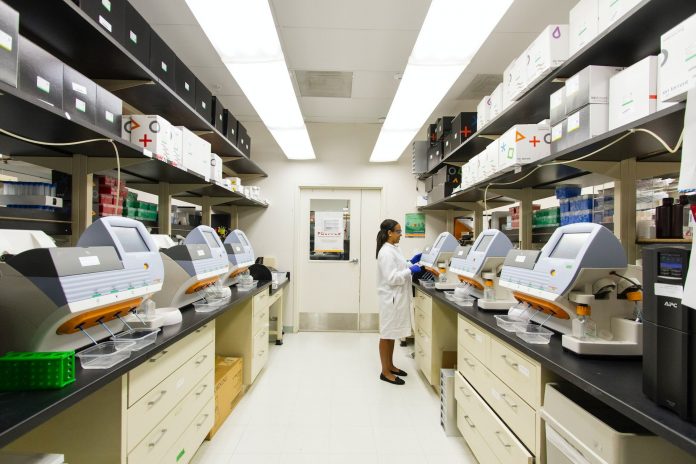The realm of biotechnology is one that thrives on innovation and precision, with its success heavily reliant on the proper care and storage of specialized equipment. As the biotech industry continues to expand, the need for adequate storage solutions becomes increasingly vital. Self-storage units offer a practical and efficient way to manage this critical aspect of biotech operations. These facilities provide a secure, controlled environment that is essential for preserving the integrity of sensitive biotech instruments and materials. Whether it’s for a growing biotech startup needing additional space or a research project requiring temporary storage for equipment, self-storage units present a flexible solution. This introduction serves to explore how self-storage units can meet the unique requirements of the biotech industry, ensuring that vital equipment and materials are maintained in optimal conditions, thereby supporting the ongoing research and development efforts in this dynamic field.
Choosing the Right Storage for Sensitive Gear
For biotechnology firms, selecting the appropriate storage solution for sensitive equipment is a decision of paramount importance. The right choice can significantly impact the integrity and longevity of valuable biotech gear. Factors such as climate control, size, and location are critical considerations. Facilities like SecurCare self storage units offer specialized environments that cater to the specific needs of sensitive biotech equipment. These units typically provide a stable, controlled climate, essential for preserving delicate instruments and materials from environmental factors like humidity and temperature fluctuations.
Additionally, the size and scalability of the storage space are important to accommodate the varying sizes of biotech equipment, from small delicate instruments to larger machinery. The location of the storage unit also plays a crucial role in ensuring easy and quick access for researchers and technicians. This accessibility is vital for maintaining a seamless workflow in biotech operations. By carefully evaluating these key aspects, biotechnology companies can choose a storage solution that not only safeguards their equipment but also supports their operational efficiency and research continuity.
Temperature Control in Biotech Storage
Temperature control is a critical aspect of storing biotechnological equipment and materials, as many of these items are extremely sensitive to environmental conditions. Maintaining the right temperature is essential for preserving the integrity and functionality of biotech resources. Facilities providing specialized storage solutions for biotech items often feature advanced temperature control systems to meet these precise requirements.
Key aspects of effective temperature management in biotech storage include:
- Consistent Temperature Range: Ensuring a stable environment that meets the specific needs of different biotech materials.
- Advanced HVAC Systems: Utilizing high-quality heating, ventilation, and air conditioning to maintain optimal conditions.
- Regular Monitoring: Keeping a constant check on temperature levels to quickly address any fluctuations.
- Customizable Settings: Allowing for specific temperature settings based on the unique requirements of each item.
- Backup Power Systems: Ensuring temperature control systems remain operational even in power outages.
The importance of such controlled environments is highlighted in resources from institutions like the National Institute of Standards and Technology, which emphasize precision in laboratory conditions. By adhering to these temperature control standards, biotech companies can assure the longevity and reliability of their crucial equipment and materials, thereby supporting their ongoing research and development endeavors.
Security Measures for Biotech Equipment

In the biotechnology sector, where equipment and materials are not only expensive but often pivotal to groundbreaking research, implementing stringent security measures is non-negotiable. The nature of these materials often demands a level of security that goes beyond standard measures. This includes enhanced physical security features such as surveillance cameras, access control systems with individualized entry codes, and alarm systems, ensuring that only authorized personnel can access the storage areas. Additionally, the incorporation of cybersecurity measures is essential to protect sensitive data associated with the stored equipment.
The importance of such comprehensive security measures extends beyond mere loss prevention. It encompasses the protection of intellectual property and proprietary research, which are invaluable assets in the biotech industry. A breach in security could not only result in financial loss but also jeopardize ongoing research and development projects. Therefore, selecting a storage facility that offers robust security solutions is crucial for biotech companies. By safeguarding their equipment and materials, these firms can maintain the continuity and integrity of their research efforts, contributing to advancements in the field of biotechnology.
Accessibility and Convenience for Researchers
Accessibility and convenience are key factors in the storage of biotech equipment, particularly when researchers need frequent access to their materials. The location and design of a storage facility can significantly impact the efficiency and productivity of research activities.
Important considerations for ensuring optimal accessibility include:
- Proximity to Research Facilities: Choosing a storage location close to labs or research centers.
- 24/7 Access: Ensuring researchers can retrieve materials any time of day or night.
- Efficient Layout and Design: Facilitating easy navigation and quick retrieval of items.
Resources like the Biotechnology Innovation Organization emphasize the importance of logistical efficiency in research operations. Accessible storage solutions empower researchers by minimizing time and effort spent in retrieving equipment, thereby maximizing their focus on actual research work. A storage unit that offers round-the-clock access and is strategically located can dramatically streamline the research process.
This convenience is not just a matter of saving time; it’s about facilitating the smooth progression of biotech projects and experiments, which often operate on tight schedules and require swift access to various materials and equipment.
Cost-Effectiveness of Self-Storage for Biotech
In the biotech industry, where funding can be a crucial concern, especially for startups and research projects, the cost-effectiveness of storage solutions is paramount. Self-storage units offer a financially viable option compared to the high expenses of traditional laboratory space. This affordability is particularly beneficial for projects like recycling plastics, where budget constraints might limit the scope of research.
By opting for self-storage, biotech companies can allocate more resources towards their core research activities rather than overheads. The flexibility of these units, allowing for upscaling or downsizing based on project demands, further adds to their economic advantage. This financial flexibility is not just about reducing costs; it enables biotech ventures to adapt quickly to changing project needs without the burden of long-term financial commitments. Thus, self-storage units stand as a strategic choice for biotech companies looking to balance budget constraints with the necessity of secure and accessible storage for their valuable research materials.
Concluding Insights on Biotech Storage Solutions
In summary, the integration of self-storage units into the biotech industry offers a multitude of benefits, from providing a controlled environment for sensitive equipment to ensuring cost-effective solutions for storage needs. These units not only facilitate the safekeeping and easy access of biotechnological materials but also support the overall efficiency and progression of research projects. Embracing these storage solutions is a strategic move for biotech companies aiming to optimize their operations while maintaining financial flexibility.

